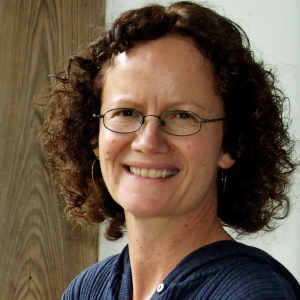“Jesus, cancer!” Rick shuddered in his chair at the mental image of watching a loved one waste away, or bearing witness to a beloved person’s features distort with pain. “Maybe my life style as a Good time Charlie was actually good protection. It always worked pretty well, as long as I wanted it to. Well.” He looked away to the back wall of the bar, refocused on the present and the woman listening carefully at the other side of the small table. “And you? How did you survive those years in the jungle?”
Maricela took a deliberate slow swallow from her non-alcoholic beer. “I would go out dancing on weekends, with my friends.” She looked away, her gaze on somewhere in the past. “I drank,” she answered quietly. “I went on short term binges. I didn’t really have relationships, or if I did, they sure were fluid ones. All high-percentage based.”
She gave him a wry smile and raised the near beer in a toast. “I had one black out too many. Finally I figured out I could get the smallest of buzzes from a near beer and it tastes just close enough to the real thing. Most people thing women drink these because they’re trying to avoid the calories.”
Maricela laughed softly; Rick thought she sounded sad. “I don’t judge you,” he was prepared to say, wanting to comfort her. He was shocked when she turned her face to him and he saw she was grinning.
“Holy shit! I was such a wild thing. I had fun, that’s for sure! I only regret I can’t remember more of it.”
Maricela’s utter candor and what sounded like a total lack of shame were attractive. She had no idea how sexy it was, the unfolding mystery of her past – her honesty about it – and the acceptance of both who she was now and what she had been like. She had no idea of the affect this had.
They sat in a bar and grill, perhaps an odd place given Maricela’s most recent story. But when he looked across the table at her she seemed at peace, happy to be with him eating lunch. Maricela talked on, unconcerned. “My friends, the women anyway, sit around and do the ‘Woulda coulda shoulda’ game. Where it went wrong, why it might have gone wrong, how they should have been stronger, or more assertive in their careers, or better mommies, or more giving to their ex-husband. Or rather most of the time, how they should have been less giving to the s.o.b.! In the end it’s all the same.
“Not me.” Maricela pierced Rick with a look. “Regretting the past doesn’t make it go away, or erase the mistakes. As nice as that would be… It’s mental masturbation. You root around in old dirt and feel guilty or bad about yourself over, and over, and over again.
“At first there was no way I was going to do a 12 steps program. Who needs to go into critical self-analysis when you can grow up Catholic? The gift that goes on giving: guilt. When I finally decided to stop drinking, I got a year of therapy to help me figure out why I liked drinking so much.”
“And?”
She laughed out loud again and the sound was truly joyous. “Well, it’s the reason I still drink non-alcoholic beer. I like the taste! I like beer! When I drank, I drank too much. There were no big revelations, which might have been the biggest revelation of all. We go hunting for deep answers, if my father had been more affectionate, if my mother only praised me more. I drank because I worked so hard. And since I weigh 130 pounds, it didn’t take much to help me unwind. I don’t have any buried family trauma, and I don’t have tendencies to be drug dependent. I never even smoked cigarettes, so I didn’t like smoking pot. When I tried smoking a joint it just tore out my lungs.
“But now I am sorry, I’m blathering on suddenly about all this! It’s old history, it’s really ancient. I haven’t gotten drunk in over a decade! It’s no big deal, Rick, I’m not a heroine or anything; I just got a little smarter about how I was living my life and what I want from it. One of the major things though, is I decided, if I met someone I wanted to see again, I have to be up front about who I am and who I’m not. And I am definitely not a drinker any more.”
“Yo, I’ve done some drinking in my time too. Not to worry. I think it goes with the territory of being young and getting older and wiser.” Inside he exulted.
They sat silent for a few minutes and Maricela resumed eating her cooling food. The silence wasn’t awkward; she really did seem at peace with herself and with the long speech she’d just given him. Rick waited until she finished eating and her hands were back in her lap before he reached over and, taking her left hand in his, silently raised it to his cheek. It was dated, the gesture: but Rick meant it.
Much later, Rick woke to feel Maricela’s presence in his bed beside him. She lay curled on her left side, the hand he’d held to his cheek earlier at lunch brushing against him.
– from my short story “Speed Dating” in Broken In: A Novel in Stories. Available in paperback or eBook at amazon.com, amazon.de, and amazon in countries everywhere.











Comments
Thanks so much for talking to us today Jadi. I am sure that everyone will enjoy reading about your experiences as a self-published author as much as I did.
Congratulations, Jadi on a great interview. Your characters are *very* memorable and I’m looking forward to reading more of your work.
Reposted from Standoutbooks:
https://www.standoutbooks.co.uk/author-interview-jadi-campbell